With the adverse impact of climate change becoming clearer almost every day, the role of technology in mitigating these devastating effects has never been more important.
Israeli innovation – from clean energy to agriculture technology – has made massive contributions to the world’s efforts to deal with this phenomenon, and NoCamels takes a look at some of the companies that have the potential to make a real difference.
Making A Splash With Clean Energy
Eco Wave Power has become a worldwide phenomenon with its ability to transform water into electricity by using the power of waves.
The company’s unique floating devices are placed in the water, where they rise and fall with the movement of waves, generating energy that is delivered to power stations on land. The power stations then convert that energy into pressure used to spin a generator, thereby producing electricity.
The system is already generating electricity in China, Israel, South America and the US, and the company lately signed an agreement to bring its technology to Taiwan.
“It seems like slowly but surely the world understands the great potential and undeniable resource, which is wave energy,” said EWP co-founder and CEO Inna Braverman.
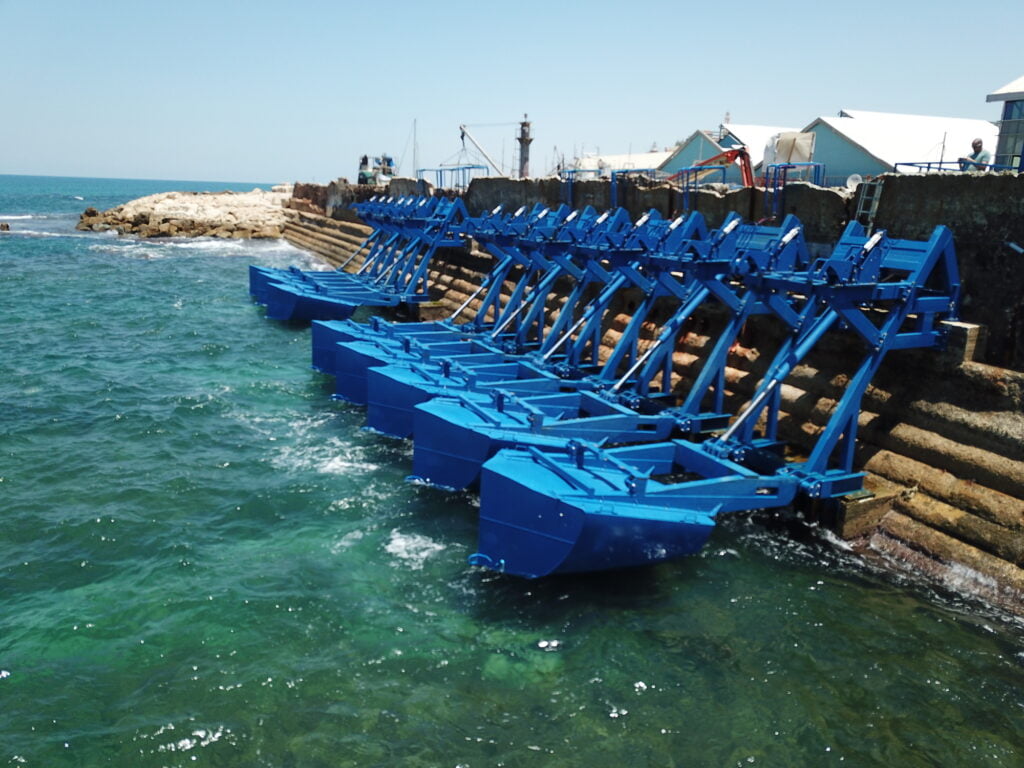
Air Con Without Electricity
With no wires, no plugs and no greenhouse gasses, Green Kinko has developed the world’s first outdoors air conditioning unit to use liquid nitrogen as a power source.
The Kensho unit quietly emits nitrogen gas at a temperature of -10C (14F) to cool the surrounding area, providing needed relief as the world gets hotter, without contributing to the problem. It even has the option of adding an insect repellent, to keep the mosquitoes at bay while enjoying a cool breeze in the garden.
Liquid nitrogen is already in wide use as a coolant in multiple industries, and the Shefayim based company came up with the idea of using it to cool the air while working on an unrelated project with cryogenic (very low temperature) liquids.
“We have invented a new generation of air conditioner,” said Green Kinko CEO Tal Leizer. “The technology is unique and amazing.”
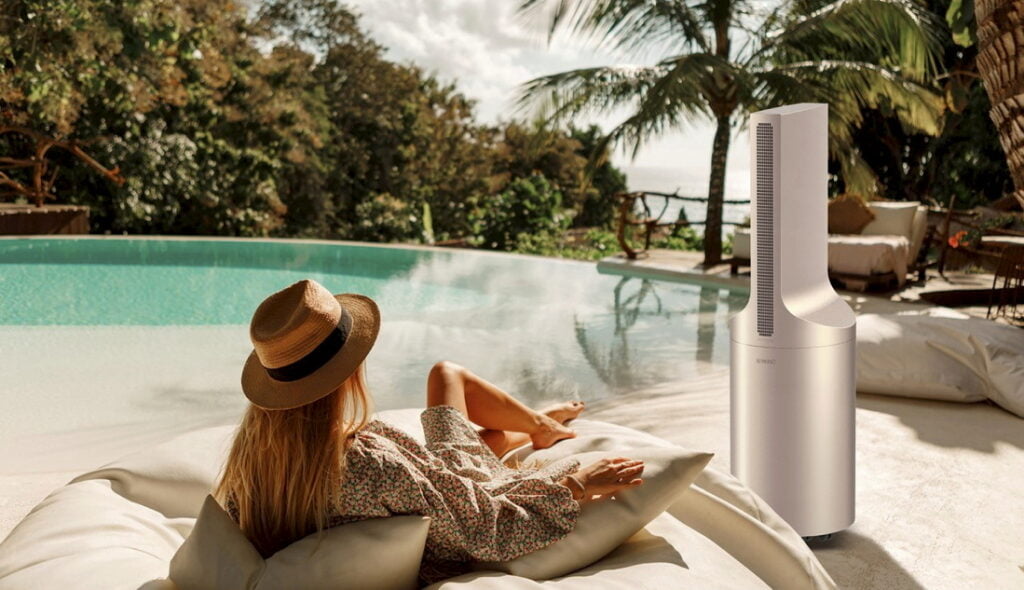
Taking The Pollution Out Of Plastic
UBQ Materials says its thermoplastic material, made from unsorted household waste, is considered to have the lowest carbon footprint in the world.
Each year, the world produces more than two billion tons of household waste, most of which is unrecyclable and sent to landfills, for incineration or dumped in open natural spaces.
The company’s patented technology breaks down the waste into its most basic molecular components and assembles them into the new raw material. It can absorb all kinds of non-sorted household waste, including organic garbage, plastics, papers, cardboard and even dirty diapers.
The process has zero emissions and uses little energy and no water, giving it a carbon footprint 15-20 times lower than that of alternative resins.
“By converting solid waste into a sustainable circular thermoplastic that acts as a plastic substitute, we can stop covering up our waste and start transforming and reusing it in safe, affordable and beneficial ways,” said UBQ International Advisory Board member and former White House climate expert Gina McCarthy.
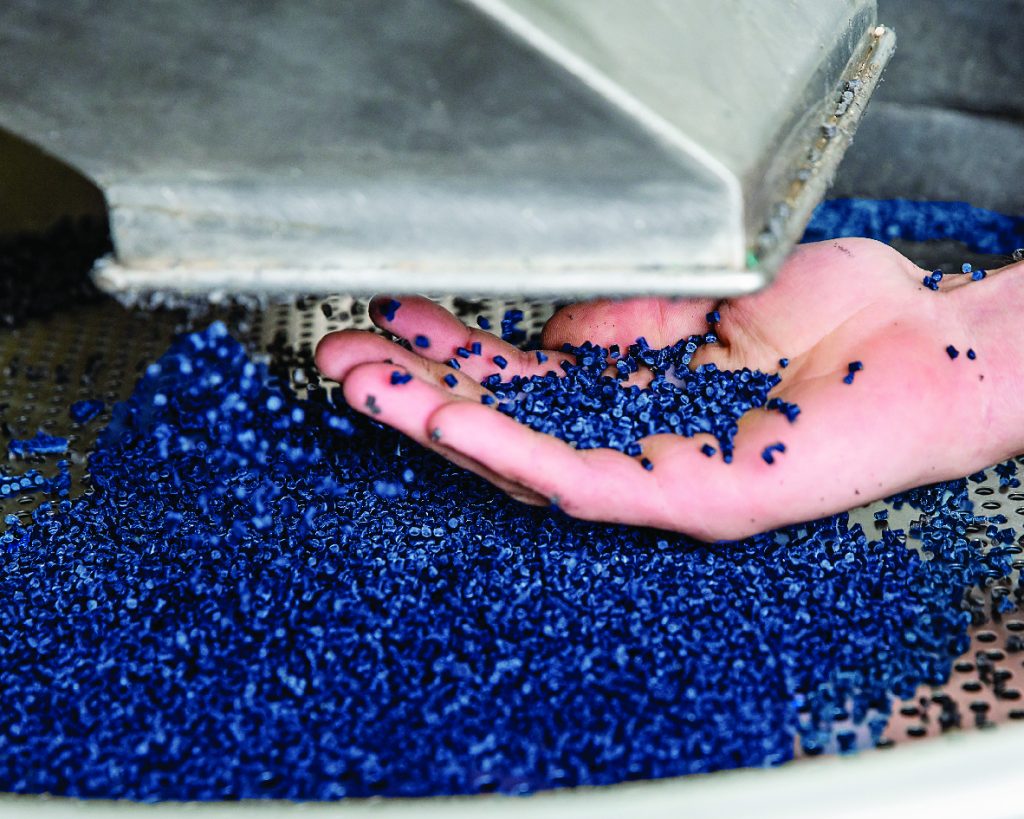
A Breath Of Fresh Air
Using data from thousands of locations worldwide, BreezoMeter’s app gives users real time information on the air quality in their immediate vicinity – even as they move about.
The startup takes data from government air monitoring stations – using more than 50,000 sources globally, including satellite, weather and traffic data. Its AI and machine-learning algorithms are then able to track levels of pollution street by street and hour by hour, and are accurate down to five meters (16 feet).
Its Cleanest Route feature directs pedestrians and cyclists to the least polluted route for them, giving the options a score from 0 to 100, based on air pollution, pollen and smoke in the atmosphere. It also works for motorists, who are actually exposed to higher levels of pollution as they sit behind the wheel.
Sign up for our free weekly newsletter
SubscribeAnd so effective is the app, the startup was bought by Google in 2022, in a deal reported to have been worth more than $200 million.
“Our mission is to improve the health and safety of millions of people by reducing their exposure to environmental hazards,” said Tamir Kessel, BreezoMeter’s head of Business Development and Strategy.
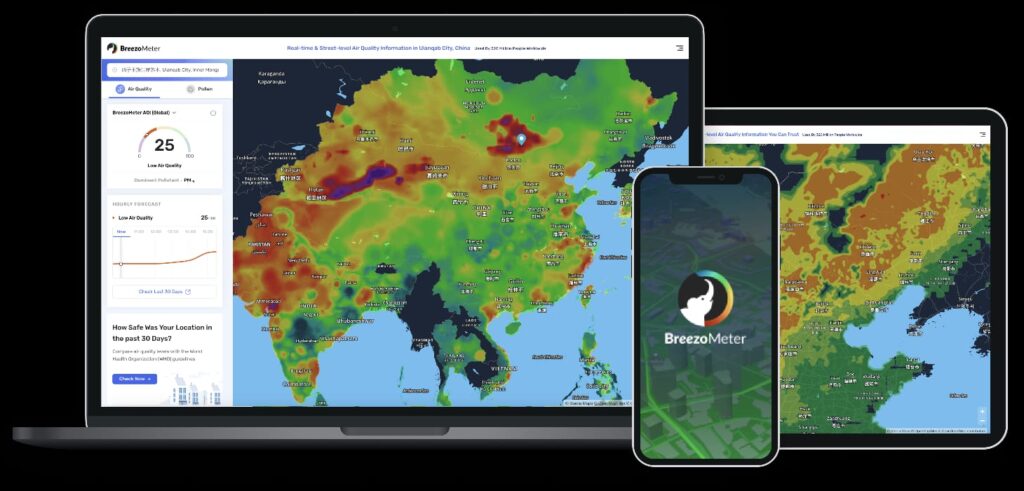
Keeping Urban Landscapes Green And Shady
Trees are one of the biggest casualties of human encroachment into natural landscapes. But one company has found a way to allow trees and technology to coexist – to the benefit of urban dwellers and nature.
TreeTube’s proprietary tubes are massive, soil-filled cylinders made from inert plastic material (one quarter of which is recycled), which are fitted together like blocks and placed under roads and walkways alongside the infrastructure of modern life.
The tubes allow the roots of the trees to grow in non-compacted soil, unlike the earth needed for pipes and cables, giving them unfettered access to the ground, air and water they need to survive.
The company works primarily with local authorities and landscape architects, and installing the tubes is a quick and efficient process that takes just several hours. The tubes are already successfully in use in Israel, the Netherlands and Estonia, providing shade, keeping down urban temperatures and even reducing carbon emissions in the air.
“Trees are fantastic filters,” said TreeTube co-founder Jonathan Antebi. “They are one of the utilities that have an actual return on investment to a municipality.
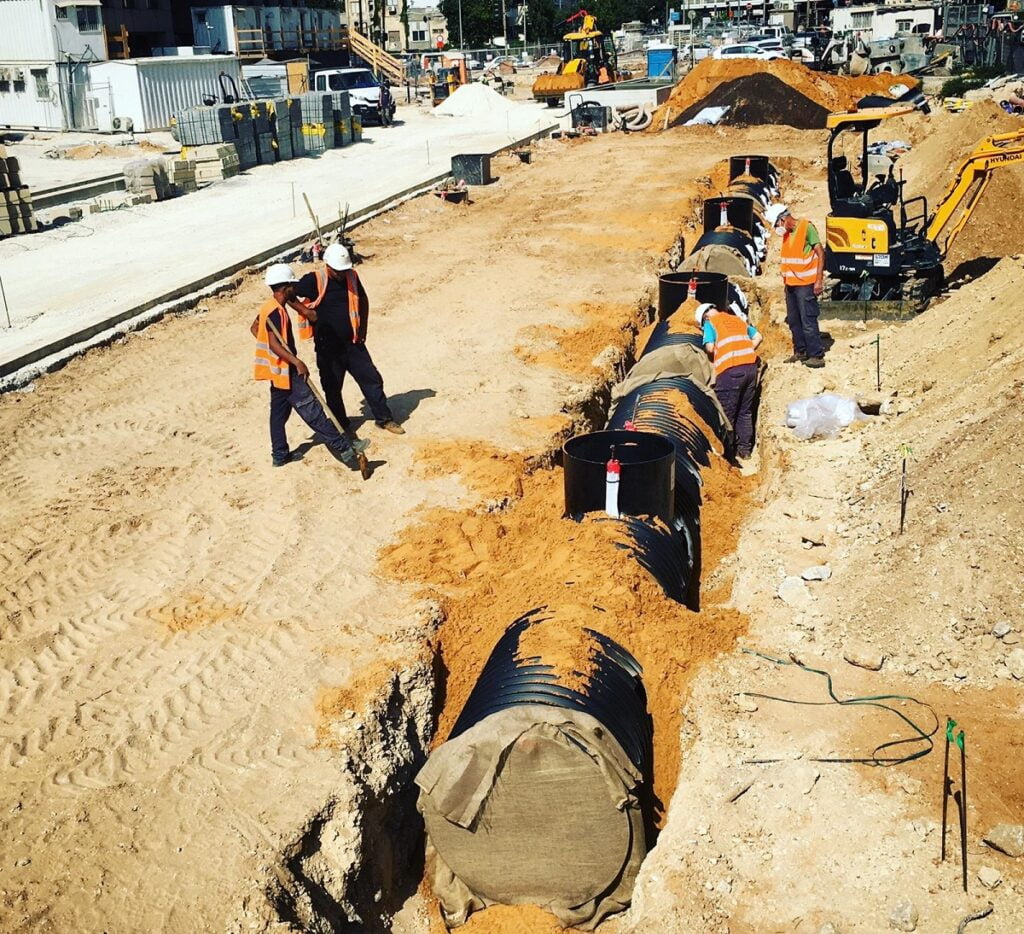
Don’t Worry, Bee Happy
As the world’s beekeepers warn of the dangers of rapidly disappearing colonies of the honeymakers, Israeli company BeeHero has created a way of monitoring their hives to ensure that the insects inside are happy and healthy.
Tiny in-hive sensors (about the size of an AirPods case) act as eyes and ears for beekeepers who rely on the bees for honey and pollination of crops.
They gather a wide range of data from inside the hives, including sound, light, temperature, vibration and humidity. The data is analyzed by the AI platform, which alerts keepers to potential issues that require their attention.
The company says its solution is in use in more than 200,000 hives worldwide and in 2022 alone saved the lives of a quarter of a billion bees, while its precision pollination program tells farmers just how many bees they need and where they need them.
“I think what is very, very unique about BeeHero is the understanding… that there must be a way to apply Big Data, algorithms, machine learning and artificial intelligence into a legacy industry,” said BeeHero’s VP Global Strategy Eytan Schwartz.

Meat With Mercy
The world’s first steak created without killing an animal was the work of Israeli startup Aleph Farms, which grows cultured cow cells in the lab to create meals to satisfy any carnivore.
Scientists have warned of the environmental impact of the world’s high demand for meat, which requires massive swathes of land for grazing, which not only is resource heavy but also drives up production costs.
Aleph Farms says its bio-engineering platform, developed in conjunction with the Technion – Israel Institute of Technology, means it can grow steak in the lab without the need for vast tracts of land, water, feed and other resources to raise cattle. Nor does Aleph require antibiotics, whose use in animal feed has exacerbated the growing phenomenon of antibiotic resistance.
The startup uses a combination of six unique, innovative technologies, including the bioreactors in which the cells are grown, which also allow it to drop the production costs of the meat.
“We’re shaping the future of the meat industry — literally,” said Aleph Farms co-founder and CEO Didier Toubia.

Related posts

Editors’ & Readers’ Choice: 10 Favorite NoCamels Articles

Forward Facing: What Does The Future Hold For Israeli High-Tech?

Impact Innovation: Israeli Startups That Could Shape Our Future




Facebook comments